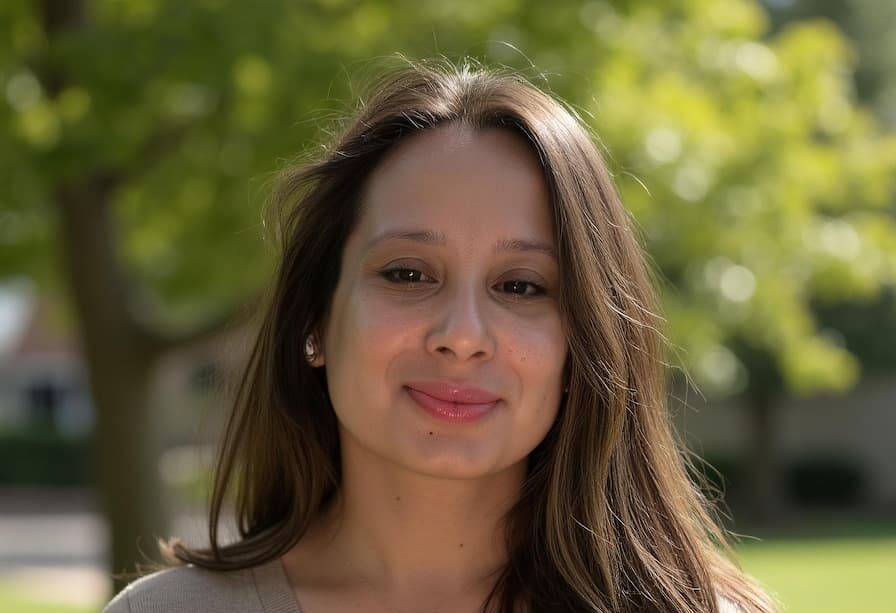In the rapidly evolving landscape of digital transformation, where quantum computing threatens to render traditional encryption obsolete and AI reshapes entire industries, a new breed of visionary emerges—one who doesn’t just adapt to change but orchestrates it. Giselle Santos stands at the epicenter of this transformation, not as another tech entrepreneur, but as a “Visionary Business Architect” who has mastered the art of turning technological disruption into collaborative opportunity.
Founded in August 2024, her company MiraElla Group has already achieved what many consider impossible: creating a quantum-protected 5G/6G data transfer platform that reduces costs by 70% while making competitors eager to become partners. Through Fabric-Plexus, Santos has proven that the future belongs not to those who dominate markets, but to those who orchestrate ecosystems where everyone thrives.
Catalyst for Collaborative Innovation
Santos’ journey into digital transformation began with a profound realization that would later define her entire approach to business architecture: “Technology’s greatest potential isn’t in creating more sophisticated solutions, but in orchestrating connections that transform competitors into collaborators.”
This insight crystallized over two decades of enterprise technology leadership, during which she consistently found herself solving not just technical challenges, but the human and organizational barriers that prevented breakthrough innovation. Her progression through strategic roles—Global Client Director at Nokia, Client Partner at BT Global Services, and Senior Solutions Director at Exiger—revealed a pattern that would become her signature approach.
“I began to understand that the most transformative innovations emerge when you orchestrate entire ecosystems rather than optimize individual components,” Santos explains. This philosophy led to her breakthrough moment as Director of Wireless Solutions, where she developed foundational concepts for private wireless networks and pioneered “Enterprise as a Partner” business models.
The true catalyst for her AI-driven focus came from recognizing that the quantum computing revolution represents humanity’s greatest opportunity to rebuild digital infrastructure collaboratively. “Instead of seeing this as a threat to be defended against, I envisioned it as a catalyst for creating collaborative technology ecosystems where security enables innovation rather than constraining it.”

This vision materialized into MiraElla Group’s flagship platform, Fabric-Plexus, which leverages NVIDIA Aerial and AI-RAN infrastructure to deliver military-grade quantum protection while enabling real-time, low-latency applications across enterprise, cloud, and edge environments. The company’s recognition as a partner in NVIDIA’s Inception Program 2025 and Santos’ nomination for the 2025 Women in Tech Award validate her belief that “the future belongs to platforms that create collaborative value rather than competitive barriers.”
Architecting Connection in a Fragmented World
For Santos, being a “Visionary Business Architect” extends far beyond professional methodology—it’s a fundamental worldview that sees possibility where others see impossibility. “I see the world not as it is, but as it could be when seemingly incompatible systems learn to dance together,” she reflects.
This perspective stems from her core belief that technology should unify and simplify, never divide or complicate. When enterprise CIOs lose sleep over quantum computing threats, Santos sees “humanity’s most excellent opportunity to rebuild our digital infrastructure the right way, as interconnected ecosystems where collaboration creates exponential value.”
Professionally, this translates into what she calls ecosystem orchestration. “I don’t build solutions—I orchestrate ecosystems,” Santos explains. Her approach to mapping how data center operators, webscale companies, and telecommunications providers can create mutual value exemplifies this philosophy. Through intelligent service composition, Fabric-Plexus automatically combines local data center resources with cloud services and specialized network capabilities, proving that “the most powerful innovations emerge when we stop thinking about individual solutions and start orchestrating comprehensive experiences.”
While drawing inspiration from companies like Snowflake and Cloudflare, Santos has designed something fundamentally different—a collaborative approach that positions MiraElla Group as “an on-ramp/off-ramp for clean, real-time data, where they would do more of the heavy lifting.” This philosophy extends to her excitement about endless collaborative opportunities, demonstrating her commitment to partnership over competition.
Leadership Through Orchestration, Not Domination
Santos’ diverse experience across various companies has shaped a leadership philosophy centered on connection rather than command. “Effective leadership is less about commanding and more about connecting—connecting people to purpose, connecting technologies to human needs, connecting competitors to collaborative opportunities,” she explains.
This approach proved invaluable during her most challenging leadership moment in 2021, while leading enterprise wireless solutions at a major infrastructure company. Having developed the transformational “Enterprise as a Partner” business plan and identified the convergence of open-source 5G technologies with quantum security challenges, she was positioned to execute groundbreaking partnerships. However, a private equity acquisition put innovative work on hold just as competitors began executing similar collaborations.
“The frustration was devastating—not because I wanted personal credit, but because I knew we were missing a historic opportunity to prove that collaborative technology ecosystems could transform entire industries,” Santos recalls. Rather than viewing corporate constraints as failure, she recognized them as market validation and began designing the organizational structure that would become MiraElla Group.
This experience taught her that “sometimes the most important leadership decision is recognizing when you need to build your own stage for the performance you want to give.” Every constraint became a design requirement for rapid, collaborative innovation, creating an organization agile enough to act immediately while sophisticated enough to architect solutions others could only theorize about.
AI as Collaborative Partner, Not Replacement
In Santos’ view, artificial intelligence has reached a milestone that transforms it from automation tool to genuine business partner. “Not only is it leading the automation and workflow environment, it is also becoming a valuable true business partner in every sense of the word,” she observes. “Your success as a business is a true reflection of their success.”
She emphasizes the rapid interoperability of AI across every business silo, noting that “using multi-modal models along with an MCP environment is rapidly changing business as we know it.” However, Santos balances her enthusiasm with caution: “While AI is the defining force of our time, it is powerful enough to both enlighten and destroy. Every breakthrough must be matched by stronger safeguards, both technologically and morally.”
This philosophy extends to her sales approach, which has evolved from reactive relationship management to predictive partnership development. AI-driven analytics now help MiraElla Group identify enterprises approaching quantum vulnerability inflection points before they realize it themselves, enabling conversations as strategic advisors rather than solution vendors.
Revolutionary Approach to Team Architecture
Santos applies the same orchestration principles to team building that she uses for technology architecture. “Just like Fabric-Plexus creates dynamic slices that enable different data types to flow through optimal paths, I structure teams so that each person operates in their zone of excellence while maintaining seamless collaboration with others.”
Her approach centers on ensuring team members understand not just what they’re building, but why it matters for the broader ecosystem being created. This alignment becomes crucial in high-stakes projects where immediate pressures demand quick decisions while maintaining focus on larger vision.
The key to fostering collaboration between technical and non-technical teams lies in what Santos calls “translation bridges”—structured interactions where technical depth meets business impact without losing either. Technical teams present work through business outcome frameworks while business teams develop sufficient technical understanding to engage meaningfully with enterprise CTOs.
Ecosystem Selling: Making Everyone More Valuable
Santos’ most successful sales methodology, “ecosystem selling,” positions MiraElla Group not as a vendor but as an orchestrator of solutions that make clients’ entire technology stacks more valuable. “When presenting Fabric-Plexus to enterprise clients, I don’t lead with our data transfer capabilities; I lead with how we enhance their existing investments in cloud infrastructure, security systems, and partnership relationships.”
This approach resonates because enterprises aren’t seeking another vendor to manage—they want platforms that solve systemic challenges while strengthening existing investments. By focusing on collaborative elevation, Santos builds relationships that survive market changes, leadership transitions, and competitive pressures because value is embedded in the fundamental partnership structure.
Security as Enabler, Not Barrier
Santos’ understanding of regulatory frameworks like NYS DFS requirements has taught her that successful digital transformations embed compliance into architecture rather than adding it afterward. “Regulatory compliance isn’t just a checkbox in digital transformation—it’s the foundation that enables innovation,” she explains.
Fabric-Plexus exemplifies this approach through automated compliance management that maintains audit trails while enforcing data sovereignty requirements across multiple jurisdictions. This transforms regulatory requirements from innovation barriers into competitive advantages, enabling enterprises to pursue aggressive digital strategies with unshakeable compliance foundations.
Her advice to organizations seeking stronger cybersecurity posture is both pragmatic and forward-thinking: “Start with the assumption that traditional encryption will be obsolete within five years due to quantum computing, then work backward from that reality.” Rather than strengthening current defenses, she advocates architecting quantum-safe foundations that enhance existing investments while creating security ecosystems where each component makes others more effective.
The Motivation Behind the Mission
What energizes Santos most is witnessing competitors decide to become collaborators. “Every time we demonstrate that Fabric-Plexus makes existing infrastructure more valuable rather than threatening it, every time a traditional security vendor realizes they can generate new revenue streams through our platform—those moments prove that technology can unify rather than divide.”
This motivation stems from her belief that they’re not just building better solutions but proving that collaborative innovation creates exponential value for everyone involved. She maintains balance by aligning personal purpose with professional mission, treating continuous learning as essential infrastructure rather than optional enhancement.
Whether pursuing NVIDIA Developer Platform Certification or diving deep into quantum cryptography, Santos invests in capabilities that serve both personal growth and the larger collaborative mission. “I’ve learned that sustainable high performance comes from aligning personal purpose with professional mission.”
Technical Depth Meets Strategic Vision
The most transformative aspect of Santos’ development has been maintaining technical hands-on competency while developing strategic thinking. “Maintaining deep technical competency—from quantum computing fundamentals to AI-driven orchestration—provides the credibility needed for authentic leadership in high-stakes innovation.”
Equally important has been developing what she calls “ecosystem intelligence”—the ability to see how disparate technologies, organizations, and market forces can be orchestrated into collaborative platforms. This combination of technical depth and strategic orchestration thinking enables building solutions that others can only theorize about.
Her approach to staying ahead in the rapidly evolving tech environment reflects this balance: “For me, the key is to focus on excelling and perfecting one task at a time and to always build something that is interoperable and exchangeable.” Though she jokes about adapting “with very little sleep,” her focus remains on creating sustainable, collaborative solutions.
Building Tomorrow’s Collaborative Paradigm
Looking toward the future, Santos envisions a legacy centered on proving that transformative innovations emerge from collaborative ecosystems rather than competitive isolation. “If MiraElla Group succeeds in our mission, my legacy will be organizations that stopped viewing technology advancement as zero-sum competition and started creating platforms where collaborative innovation generates exponential value.”
Her ultimate vision involves a digital transformation paradigm where enterprises ask not “How can we beat our competitors?” but “How can we orchestrate ecosystems where everyone thrives?” This philosophy extends to her advice for aspiring professionals: “Learn to see patterns before they become obvious, then architect solutions that turn apparent obstacles into collaborative opportunities.”
The future, according to Santos, belongs to professionals who can identify technology convergences years before market consensus while designing approaches that make competitors want to become partners. “Focus on building bridges rather than walls, creating platforms rather than products, and orchestrating ecosystems rather than dominating markets,” she advises.
The Fabric of Future Innovation
As MiraElla Group targets the $12+ billion secure 5G/6G market opportunity with working interfaces deployed across pharmaceutical, retail, defense, and education sectors, Santos continues proving that the most powerful career acceleration comes from making others more successful. Her patent-approved quantum-protected data mobility architecture (Application No. 85067582) represents more than technical innovation—it embodies a philosophy that collaborative innovation creates opportunities pure competition never could.
Through Fabric-Plexus and the broader MiraElla Group ecosystem, Santos is demonstrating that when technology unifies rather than divides, when quantum threats transform into quantum opportunities, and when competitors become collaborators, the result isn’t just business success—it’s the foundation for a more connected, secure, and innovative digital future.
“My inspiration continues to be those moments when we demonstrate that technology can unify rather than divide,” Santos reflects. “When competitors decide to become collaborators, when complex security becomes simple enablement, and when quantum threats transform into quantum opportunities for unprecedented collaboration.”
In architecting these moments of transformation, Giselle Santos isn’t just building a company—she’s orchestrating a new paradigm where the future belongs to those who can create collaborative value rather than competitive barriers.




